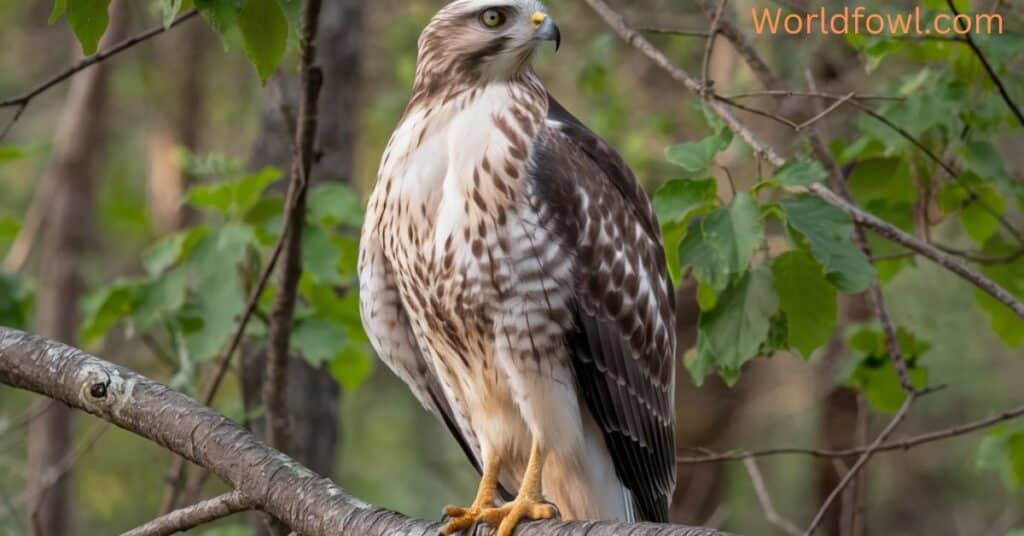Hawks are among the most fascinating birds of prey, captivating bird watchers and nature enthusiasts with their impressive hunting skills and striking appearances. Known for their keen eyesight and powerful flight, these birds play a critical role in maintaining the balance of their ecosystems. A common question arises among those curious about these magnificent creatures: do hawks hunt at night? This article will explore this question in depth, examining the hunting habits of hawks, their adaptations, and their behaviors during the night.
Understanding Hawk Behavior
Diurnal Hunters
Hawks are primarily diurnal creatures, meaning they are active during the day. This classification is an essential aspect of their biology and hunting strategies. Most hawks rely on daylight to hunt effectively. Their eyes are adapted for high visibility and detail in bright light, making them efficient predators when the sun is shining.
Anatomical Adaptations
Hawks possess several anatomical features that aid in their daytime hunting:
- Keen Eyesight: Hawks have extraordinary vision, with a visual acuity that is several times better than that of humans. They can see colors that are invisible to us, allowing them to detect prey against various backgrounds.
- Fovea: Hawks have two foveas in each eye, which provide them with sharp, detailed vision. This adaptation allows them to spot movement from great distances.
- Large Eyes: The size of a hawk’s eyes contributes to their ability to gather light, enhancing their vision in daylight. However, this feature does not translate into superior night vision.
The Importance of Light
Hawks rely heavily on light to hunt effectively. They have evolved as daylight hunters, and their hunting strategies are finely tuned to the conditions present during the day. Twilight hours are sometimes active for them, but full darkness presents significant challenges that hinder their hunting abilities.
you may also like : Do Hawks Attack Humans? Why Are Hawks Aggressive To People?
Do Any Hawks Hunt at Night?
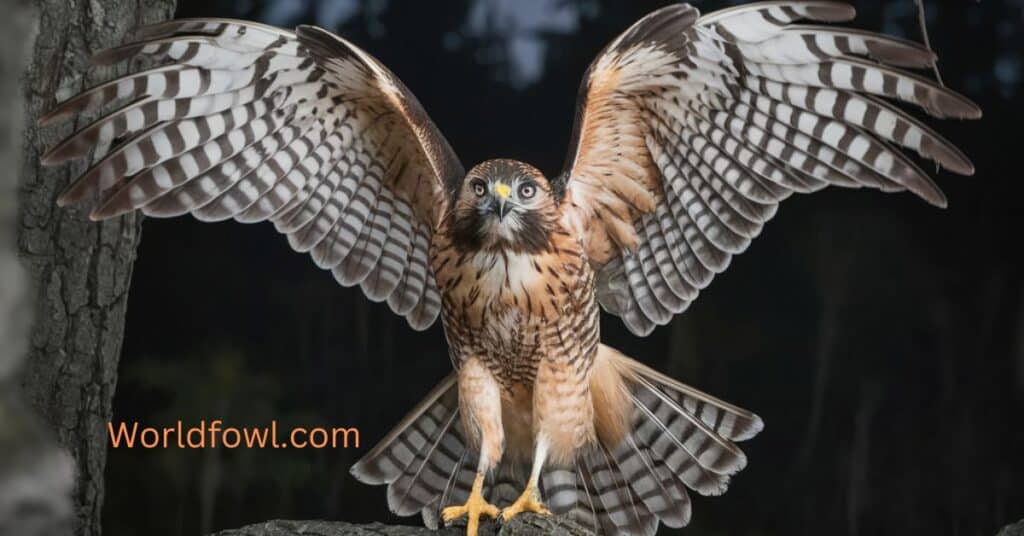
While the general consensus is that hawks do not hunt at night, it’s interesting to explore whether there are any exceptions. In fact, the majority of hawk species are strictly diurnal.
The Nighthawk Confusion
One potential source of confusion arises from the name “nighthawk.” Nighthawks are not true hawks; they belong to the nightjar family (Caprimulgidae). These birds are nocturnal and primarily hunt insects during twilight and nighttime. This distinction is crucial; while nighthawks are active at night, true hawks are not.
Species Overview
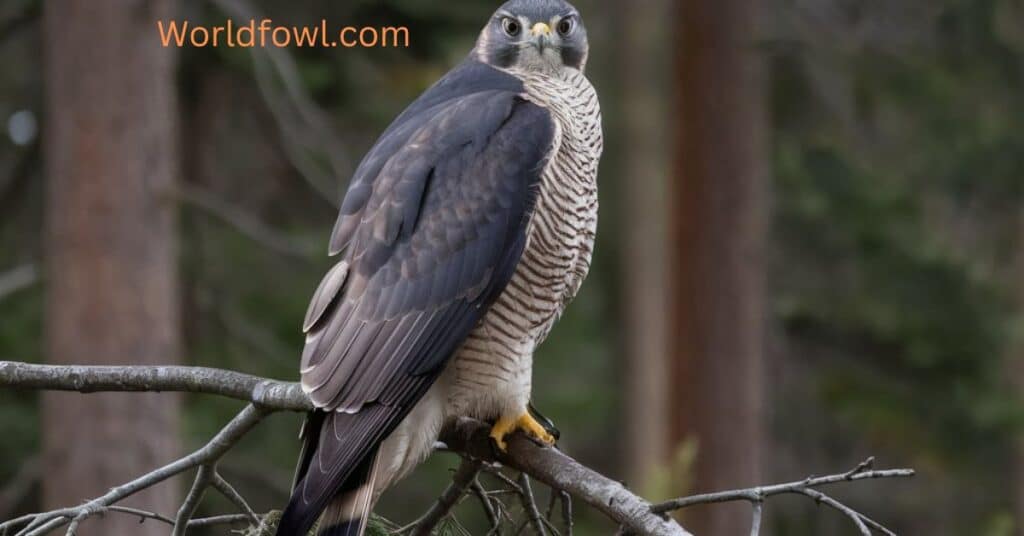
Let’s take a closer look at some well-known hawk species and their hunting habits:
- Red-tailed Hawk (Buteo jamaicensis): This hawk is one of the most common in North America. It hunts small mammals and birds during the day, often soaring high in the sky and scanning the ground for movement.
- Cooper’s Hawk (Accipiter cooperii): Known for its agility, the Cooper’s Hawk excels at hunting small birds. It prefers to hunt in wooded areas, using stealth and speed. Like the Red-tailed Hawk, it is strictly diurnal.
- Northern Goshawk (Accipiter gentilis): This powerful hawk is known for its strength and speed. It hunts birds and small mammals, primarily during the day in forested habitats.
Nocturnal Adaptations in Other Birds of Prey
While hawks do not hunt at night, it’s worth comparing them to other birds of prey that are nocturnal, such as owls. Owls possess several adaptations that allow them to excel in low-light conditions:
- Enhanced Night Vision: Owls have a high density of rod cells in their retinas, which are sensitive to light. This adaptation allows them to see in darkness far better than hawks.
- Facial Discs: Many owls have specialized facial structures that help funnel sound to their ears, improving their ability to locate prey by sound in the dark.
- Silent Flight: Owls have unique feather structures that reduce noise during flight, allowing them to approach their prey stealthily.
These adaptations illustrate why hawks, which lack such features, are not suited for nighttime hunting.
you can also read : Do Vultures Attack Humans? Here’s What You Need To Know
Why Don’t Hawks Hunt At Night?
Several factors explain why hawks do not hunt at night. Understanding these factors provides insight into their ecological roles and behaviors.
Visual Limitations
As mentioned earlier, hawks have excellent vision during the day but limited capabilities for seeing in low-light conditions. Their eye structure is designed for daylight activity, and they lack the adaptations necessary for effective night hunting.
Prey Availability
Most prey species that hawks target, such as small mammals and birds, are also diurnal. As a result, if hawks were to hunt at night, they would encounter fewer opportunities for successful captures. The alignment of predator and prey activity is a critical component of their hunting success.
Risks and Challenges
Hunting at night presents significant risks for hawks. The darkness makes navigation difficult, increasing the likelihood of collisions or accidents. Additionally, being active at night could expose hawks to larger nighttime predators, such as owls or larger raptors.
Energy Conservation
Another reason hawks do not hunt at night is related to energy conservation. Hunting requires significant energy expenditure, and being active during the night when prey is scarce may not be energetically viable. By resting at night, hawks can conserve energy for more productive hunting during the day.
What Do Hawks Do At Night?
While hawks do not hunt at night, they engage in various behaviors that are essential for their survival. Understanding these nocturnal routines enhances our appreciation of their lifestyle.
Roosting Habits
At night, hawks seek safe places to roost. Roosting is crucial for their rest and recovery after a day of hunting.
- Choosing a Roost: Hawks often perch in high trees or on cliff edges, where they can avoid ground predators. They prefer locations that provide a good view of their surroundings, allowing them to spot potential threats.
- Social Behavior: Some hawks may roost communally, particularly during migration or in winter months. This behavior can provide safety in numbers and warmth during colder periods.
Nocturnal Interactions
Though hawks primarily rest at night, they may engage in some social interactions.
- Vocalizations: Hawks communicate with one another using a variety of calls. These vocalizations can serve to establish territory or maintain social bonds.
- Territorial Displays: During twilight hours, hawks may occasionally engage in displays to assert dominance or defend their territory.
Case Study: Red-tailed Hawk Behavior
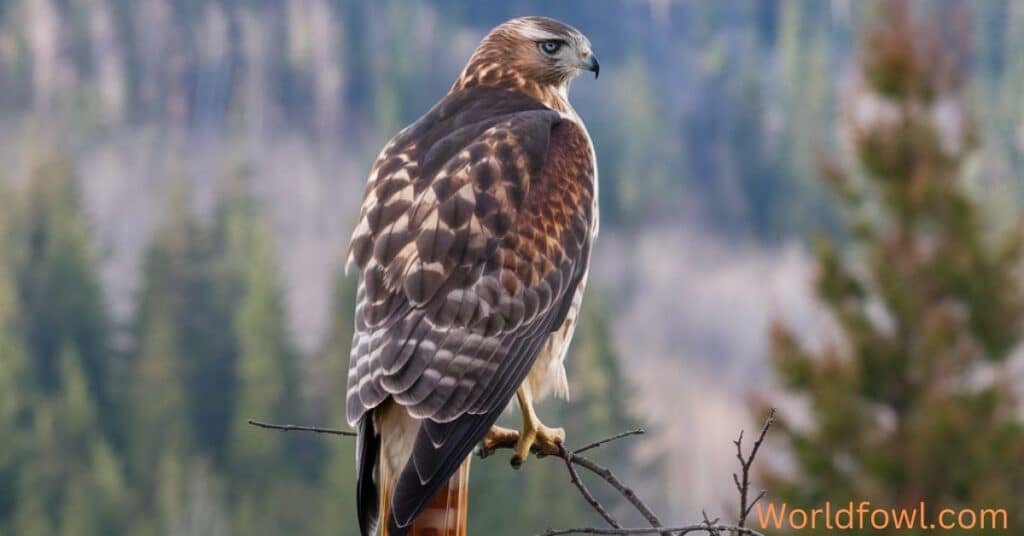
A study focusing on Red-tailed Hawks in urban environments revealed that while these birds primarily hunt during the day, they sometimes engage in social interactions at dusk. Researchers observed that as daylight faded, hawks would call to one another, reinforcing their territorial boundaries.
you may also like : Finches In Texas – The Complete Guide To Texas Finches
When Do Hawks Hunt?
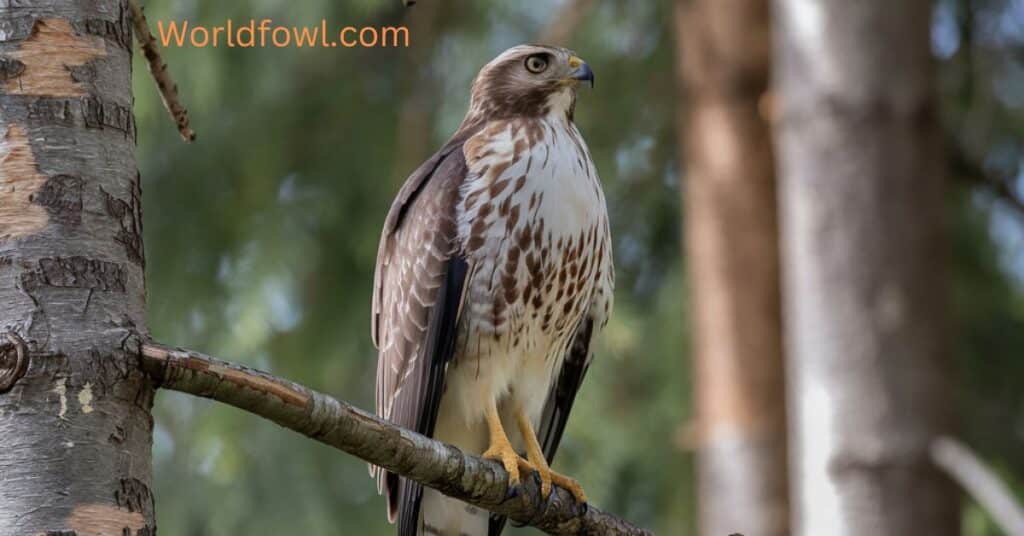
Hawks have specific times during the day when they are most active in hunting. Understanding these peak hunting times can enhance our appreciation of their behavior.
Peak Hunting Times
- Early Morning: Just after sunrise, hawks take advantage of the active morning hours of their prey. This time is marked by increased movement among small mammals and birds.
- Late Afternoon: The hours leading up to sunset are also prime hunting times. Prey animals become more active, foraging for food before nightfall.
Seasonal Variations
Hawk hunting behavior can vary with the seasons:
- Spring and Summer: During warmer months, prey availability increases, leading to more frequent hunting. Hawks may also be raising young, which requires additional hunting efforts.
- Fall and Winter: As temperatures drop, some hawks may alter their hunting patterns. They might rely on cached food or be less active during particularly cold periods.
Factors Influencing Hunting Behavior
Several external factors can influence when hawks hunt:
- Weather Conditions: Windy or rainy weather can affect hunting success. Hawks may prefer calmer days for optimal hunting conditions.
- Time of Year: During migration, hawks may change their hunting patterns based on available resources in different areas.
What Do Hawks Eat?
Hawks have diverse diets that can vary based on their species, habitat, and available prey. Understanding their diet is key to comprehending their ecological role.
Common Prey for Hawks
Hawks are opportunistic feeders, meaning they will adapt their diet based on what is available. Common prey includes:
- Small Mammals: Rodents, such as mice and voles, are a staple food source for many hawk species. Larger hawks, like the Red-tailed Hawk, may also hunt rabbits.
- Birds: Many hawks, particularly the Cooper’s Hawk, prey on smaller birds like sparrows and doves.
- Reptiles and Insects: Some hawks will consume snakes, lizards, and insects when other food sources are scarce.
Diet Variation by Species
Different species of hawks exhibit varied dietary preferences. Here’s a quick overview:
| Hawk Species | Primary Diet | Hunting Technique |
| Red-tailed Hawk | Rodents, rabbits | Soaring and diving |
| Cooper’s Hawk | Small birds | Stealthy ambush |
| Northern Goshawk | Birds and mammals | Fast, agile pursuit |
| Harris’s Hawk | Varied (small mammals, birds) | Cooperative hunting |
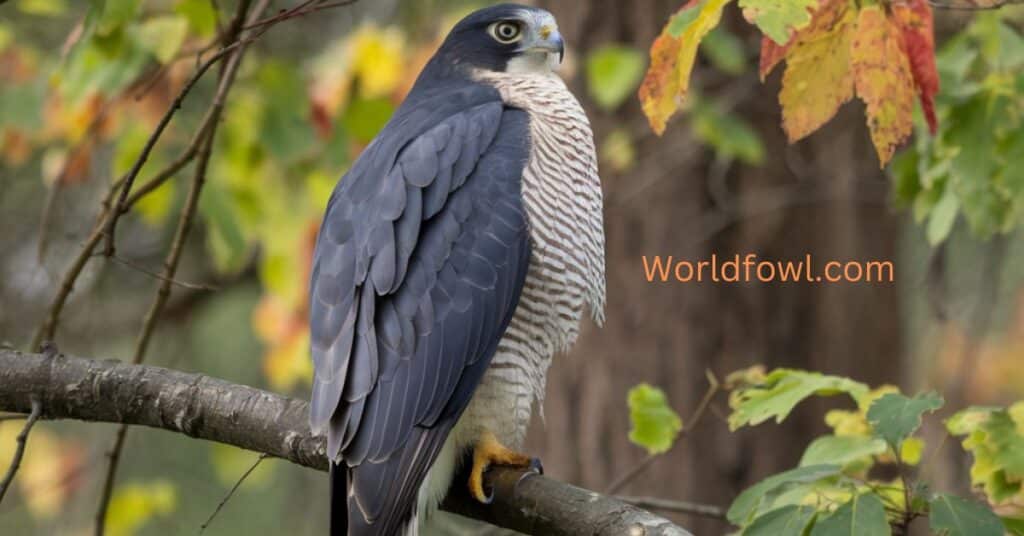
Hunting Techniques
Hawks employ various hunting techniques depending on their species and the type of prey they target:
- Soaring: Many hawks, such as the Red-tailed Hawk, utilize thermal updrafts to soar high above the ground, scanning for prey.
- Diving: Once prey is spotted, hawks can dive at incredible speeds to catch their target.
- Stealth: The Cooper’s Hawk often uses stealth and agility, moving quietly through trees to surprise its prey.
you can read : Why Do Hawks Screech? The Surprising Truth
The Ecological Role of Hawks
Hawks play a vital role in their ecosystems as top predators. Their hunting activities help control populations of small mammals and birds, contributing to the balance of their habitats.
Population Control
By preying on small mammals, hawks help regulate their populations. This control is essential for maintaining the health of ecosystems. Without natural predators like hawks, certain prey species could become overpopulated, leading to overgrazing and habitat degradation.
Indicator Species
Hawks serve as indicator species, meaning their presence or absence can reflect the health of an ecosystem. A decline in hawk populations may signal changes in the food web or environmental conditions, prompting further investigation into ecological health.
Biodiversity Support
Hawks contribute to biodiversity by helping maintain the balance of species in their habitats. Their predation ensures that various prey species remain in check, promoting a diverse range of plants and animals.
Conservation of Hawks
Despite their ecological importance, many hawk species face threats that can impact their populations and habitats. Understanding these challenges is crucial for their conservation.
Habitat Loss
One of the most significant threats to hawks is habitat loss due to urban development, agriculture, and deforestation. As their natural habitats shrink, hawks may struggle to find sufficient food and nesting sites.
Pesticide Use
The use of pesticides in agriculture poses a serious threat to hawks and other birds of prey. These chemicals can accumulate in the bodies of prey animals, leading to poisoning when hawks consume them.
Climate Change
Climate change affects hawks by altering prey availability and habitat conditions. Changes in temperature and weather patterns can disrupt the delicate balance of ecosystems, impacting hawk populations.
Conservation Efforts
Several organizations and initiatives work to conserve hawk populations and their habitats:
- Habitat Restoration: Efforts to restore and protect natural habitats can help sustain hawk populations.
- Public Education: Raising awareness about the importance of hawks and the threats they face can encourage conservation efforts among local communities.
- Policy Advocacy: Supporting policies that promote sustainable land use and pesticide regulation can benefit hawk populations.
Conclusion – Do Hawks Hunt At Night?
In conclusion, the question of whether do hawks hunt at night? reveals much about the biology and behavior of these remarkable birds. While hawks are primarily diurnal hunters, they engage in various behaviors at night that are crucial for their survival. Their adaptations, hunting strategies, and ecological roles make them fascinating subjects for study and admiration.
Summary of Key Points
- Hawks are diurnal: They primarily hunt during the day and have adaptations that optimize their hunting success in daylight conditions.
- Limited night vision: Hawks do not have the adaptations for effective hunting at night, unlike owls and other nocturnal predators.
- Behavior at night: Hawks roost, interact socially, and establish territories during the night, but they do not hunt.
- Diet and hunting techniques: Hawks have diverse diets and employ various hunting strategies, primarily targeting small mammals and birds.
Further Reading and Resources
For those interested in exploring the world of hawks and their behaviors further, consider these resources:
- “The Birds of North America”: An extensive database covering different species and their behaviors.
- “Hawks at a Distance”: A field guide for identifying hawks in the wild.
- Local Birdwatching Groups: Join to observe hawks and other birds in their natural habitats.
Understanding the lives of hawks enriches our appreciation of these incredible birds. They play a crucial role in their ecosystems, managing populations of small mammals and birds. The next time you see a hawk soaring overhead, remember the intricate dynamics of its daily life and the evolutionary adaptations that make it a masterful hunter of the skies.

Henry James is a seasoned blogger and a passionate storyteller on “World Fowl.” With years of experience crafting engaging content, he brings a unique blend of expertise and creativity to his writing. Henry specializes in exploring diverse topics with depth and clarity, captivating readers worldwide.

